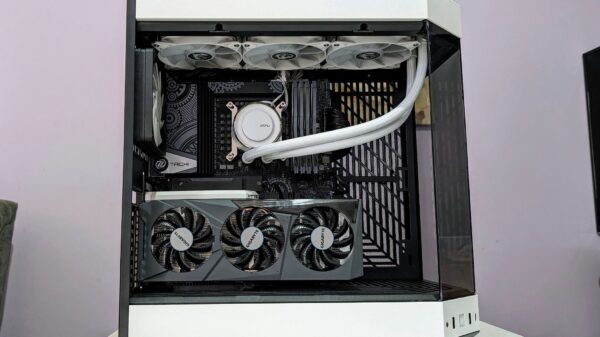Businesses using outdated PCs face significant risks, particularly concerning security threats and productivity. As millions of Australian PCs still operate on Windows 10, which reached its end of support in October 2025, these systems have become vulnerable targets for cybercriminals. The sophistication of attacks has increased, with many small businesses lacking dedicated cybersecurity teams, making them easy prey for targeted scams and hacks.
According to a recent discussion between Andrew Ridley, Enterprise and Government Sales Director for ANZ at Intel Corporation, and Andy Malakuti, Go-to-Market Lead at Microsoft, security incidents affecting small and medium-sized businesses (SMBs) can cost up to $3 million, a figure that could lead to permanent closure for many. Many companies continue to rely on five-year-old PCs that cannot withstand today’s heightened threat landscape.
The risks extend beyond the digital realm. Under current Australian privacy regulations, directors may face personal liability for preventable data breaches. For many SMBs, this highlights that the issue of aging hardware is not just an IT problem; it represents a governance challenge as well.
Cost of Outdated Technology
The economics of maintaining older technology no longer add up. Aging PCs frequently fail, require more technical support, and hinder team mobility due to poor battery life. In contrast, current-generation PCs equipped with Intel vPro technology enable IT teams to diagnose and resolve issues remotely, even reimaging blue-screened machines without needing a site visit.
The productivity gap between five-year-old PCs and newer models is pronounced. New processors can more than double performance, while graphics capabilities have improved by over 40 percent. This enhancement is not merely about faster task completion; it enables on-device AI processing, allowing businesses to harness AI tools without compromising sensitive data.
Devices like Windows 11 Pro Copilot+ PCs, powered by the Intel® AI Boost Neural Processing Unit (NPU), provide enterprise-level AI capabilities for around $2,500. This technology allows organizations to utilize AI for various tasks, from automatically generating consultation notes in healthcare to producing instant damage reports in insurance. Additionally, marketing agencies can quickly personalize content for different demographics while safeguarding confidential information.
Enhanced Security Features
Modern PCs are built with security at their core. Technology such as Intel’s Assured and Trusted Supply Chain verifies components throughout the manufacturing process to prevent tampering. Features like Intel Trusted Execution (TXT), Trusted Platform Module (TPM 2.0), and Microsoft Pluton create a reliable security framework from the moment a device is turned on.
NPUs are designed to handle continuous threat scanning, maintaining system performance while detecting anomalies in real-time. Security software providers, including McAfee and CrowdStrike, have tailored their offerings to this hardware layer, leveraging AI to identify deepfakes and synthetic attacks before they can spread.
User-friendly features also enhance security. Modern PCs can automatically lock when users step away and reauthenticate using Windows Hello facial recognition. Innovations like live caption translation and noise cancellation allow employees to work securely and professionally in public spaces without risking exposure of sensitive information.
The initial cost of upgrading to modern technology often pays for itself quickly. Total cost-of-ownership studies indicate that most businesses recoup their investment within six months due to increased productivity, reduced support visits, and lower energy consumption. Preventing even one security breach can outweigh the cost of refreshing an entire fleet of devices.
Today’s devices not only safeguard businesses but also future-proof them against the rapid evolution of AI. Open-source tools available on platforms like Hugging Face and AI Playground enable teams to create custom solutions without needing extensive coding knowledge.
Intel and Microsoft have transitioned from merely democratizing personal computing to democratizing artificial intelligence. The PCs of 2025 serve as a foundation for how work will be conducted in the AI era. For small businesses, where time and trust are paramount, upgrading to Windows 11 Pro devices is not just about keeping pace with technology; it is vital for staying ahead of competitors who are already redefining their operational strategies.
Investing in modern technology empowers teams, secures businesses, and unlocks the full potential of their technological capabilities.






































































